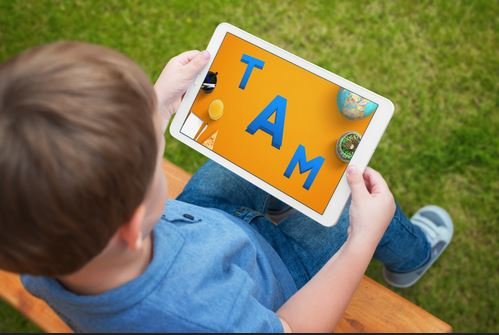Apps designed for kids with special needs play a crucial role in enhancing learning, communication, and overall development. These specialized apps cater to various disabilities and challenges, providing support and opportunities for growth. This blog explores the impact of such apps and highlights key features that make them effective tools for kids with special needs.

Benefits of Apps for Children with Special Needs
Specialized apps offer several advantages for children facing challenges:
- Personalized Learning: Tailored activities that cater to individual learning styles and abilities.
- Enhanced Communication: Tools to support speech, language development, and social interaction.
- Skill Development: Activities that promote cognitive, motor, and sensory skills.
Types of Apps for Children with Special Needs
There are diverse categories of apps designed to support children with various disabilities:
- Communication Apps: Augmentative and alternative communication (AAC) apps for non-verbal or minimally verbal children.
- Educational Apps: Apps that teach academic skills in a simplified and accessible manner.
- Behavioral and Social Skills Apps: Apps that help develop social skills, emotional regulation, and behavior management.
Key Features That Enhance Learning and Communication
Effective apps for children with special needs include features such as:
- Visual Supports: Visual cues, symbols, and pictures to aid comprehension.
- Customization: Ability to personalize settings and content based on individual needs.
- Feedback and Reinforcement: Immediate feedback and positive reinforcement to encourage engagement.
Examples of Top Apps for Children with Special Needs
Explore some of the highly recommended apps that support learning and communication:
- Proloquo2Go: AAC app that assists non-verbal individuals in communicating using symbols and text-to-speech.
- Endless Reader: Helps children learn sight words through interactive games and stories.
- Choiceworks: Supports children with autism in understanding routines and making choices through visual schedules and timers.
Impact on Learning and Development
Apps for children with special needs contribute positively by:
- Empowering Independence: Encouraging self-expression and decision-making.
- Facilitating Inclusion: Promoting participation in educational and social activities.
- Supporting Caregivers: Providing tools for parents, teachers, and therapists to collaborate in the child’s development.
Challenges and Considerations
When using apps for children with special needs, consider:
- Accessibility: Ensuring apps are accessible across different devices and platforms.
- Adaptability: Adapting content and features to meet evolving needs and abilities.
- Privacy and Safety: Protecting sensitive information and ensuring secure online interactions.
Future Trends in Apps for Children with Special Needs
As technology evolves, apps for children with special needs are expected to:
- Integrate Artificial Intelligence (AI): Personalize learning experiences and adapt in real-time.
- Expand Global Reach: Provide multilingual and culturally inclusive content.
- Promote Universal Design: Develop apps that are accessible to all children, regardless of ability.
Conclusion
Apps designed for kids with special needs play a pivotal role in supporting their learning, communication, and overall development. By leveraging technology to provide personalized and engaging experiences, these apps empower children to achieve their full potential and participate more fully in educational and social contexts.
Whether enhancing communication skills, fostering independence, or promoting academic achievement, apps for children with special needs are invaluable tools that contribute to a more inclusive and supportive learning environment.

